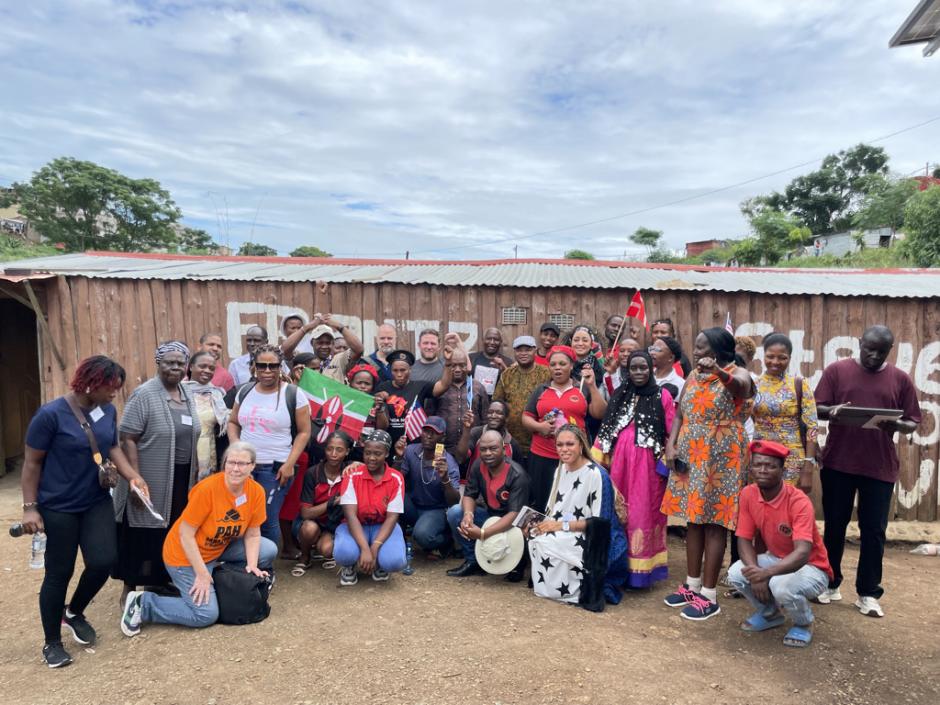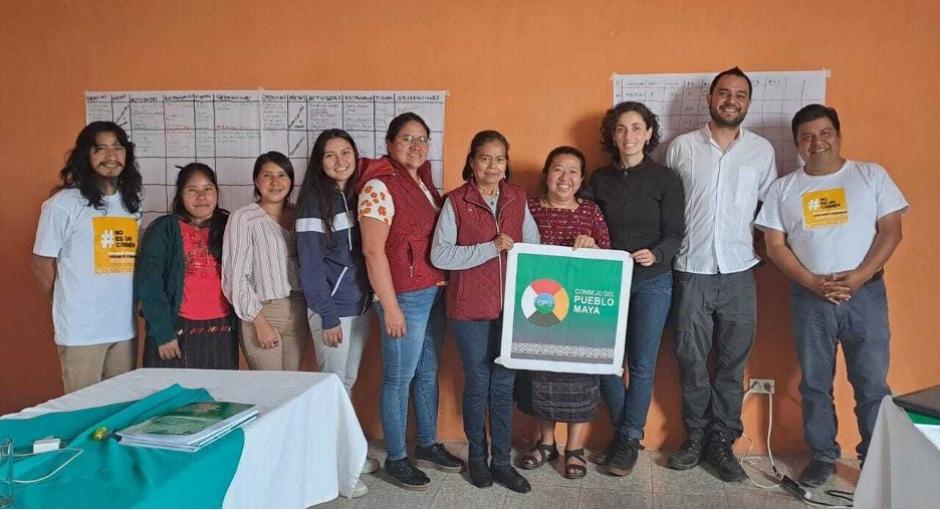On 7 – 11 February 2023, ESCR-Net social movement members gathered in Durban, South Africa. The participants were largely from the Sub-Saharan region, along with a few fellow social movement members from the USA and Spain, as well as a few allies from within and outside the Network. The gathering was co-hosted by members, Abahlali baseMjondolo (AbM) and Socio-Economic Rights Initiative (SERI).
The gathering was largely regional in nature due to the ongoing travel concerns posed by the COVID-19 pandemic at the time of planning. However, subsequent gatherings are intended to be increasingly global in nature as travel restrictions continue to ease.
The objectives of the gathering were to: 1) facilitate mutual learning between social movement members of ESCR-Net, 2) deepen shared analysis to provide guidance to the future strategic direction of the Network and finally 3) to strengthen cross-regional solidarity amongst movements particularly in the face of recent attacks on Abahlali baseMjondolo.
Learning from Abahlali baseMjondolo
The meeting co-hosts Abahlali baseMjondolo facilitated a full day of mutual learning, building on the history, politics, philosophy, structure and methods of their movement since its inception in 2005. This included the concept of ubuhlalism which refers to the notion that our humanity is defined by, dependent on and confirmed in our relationships with those around us. Similarly, the importance of practical solidarity was highlighted. Solidarity must be based in action and not a theoretical concept. Finally, the importance of narratives was discussed.
Several important conversations arose from this conversation about the experiences of Abahlali baseMjondolo. Members shared examples of revolutionary movements turning into oppressors after seizing power. In South Africa, the ruling ANC party is a clear example of this for many impoverished communities who have continued to experience dispossession and repression at the hands of the State, despite the end of racial apartheid. This sparked an important discussion about the role of party politics, elections and voting power of movements as vehicles for real change versus the real risks of cooptation of movements and communities being used in party political strategies.
Building leaders and movements
Members discussed their practices with movement building and cultivating leaders in their communities. This raised the importance of building strong, collective leadership rather than focusing on individual, charismatic leaders.
Similarly, the session led to intense and important conversations regarding the importance of diversity in leadership and the importance of cultivating women leaders in movements. Women leaders reflected on the specific and multiple challenges that women face in coming into leadership in many communities due to gender norms and discrimination, and these challenges are compounded for women leaders who face discrimination based on other aspects of their identity (i.e. ethnicity, marital status, disability, etc.)
Deepening analysis in the Common Charter and discussing Alternatives to the dominant model.
Since late 2020, social movement members of ESCR-Net have collectively reflected on the evolving global conditions outlined in the Common Charter. These reflections continued in the gathering in Durban with members sharing their understanding of how the Global Conditions in the Common Charter are reflected in their struggles and communities. This led to valuable conversations deepening and expanding the analysis found in the Common Charter.
During the gathering, movement members also shared alternative forms of organizing or governance or concrete alternative projects being lived by their movement or community. The Common Charter presents alternatives to the dominant model as an emerging point of unity to collectively confront the conditions that communities face. Broadly speaking, it was agreed that alternatives must be looking to ensure the dignity of all people and in particular be in service of the impoverished and the working class. Community empowerment and self-reliance were also mentioned as key principles of alternatives to the dominant model. Pursuing collective action and collectivism over individualism were also considered key.
Similarly, members have long been excited about the possibility of taking up campaigning across the Network. During the gathering, members discussed what this could potentially look like for different areas of struggle.
Strengthening member-to-member solidarity
The gathering culminated with a solidarity visit to the eKhenana Commune in Durban. During 2021 and 2022, the commune has faced severe repression in the form of attempts at forced evictions, trumped up charges and assassination of three community leaders, Ayanda Ngila, Nokuthula Mabaso and Lindokuhle Mnguni.
Similarly, social movement members shared strategies that they use to stay safe and reflected on the ways that members can stand in solidarity with each other.


